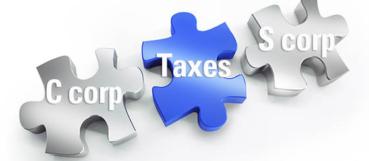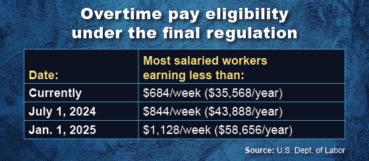Choosing a retirement plan for your small business

Most growing small businesses reach a point where the owner looks around at the leadership team and says, “It’s time. We need to offer employees a retirement plan.”
Often, this happens when the company is financially stable enough to administer a retirement plan and make substantive contributions. Other times it occurs when the business grows weary of losing good job candidates because of a less-than-impressive benefits package.
Whatever the reason, if you don’t have a retirement plan and see one in your immediate future, you’ll want to carefully select the one that will work best for your company and its employees. Here are some basics about three of the most tried-and-true plans.
1. 401(k) plans offer flexibility
Available to any employer with one or more employees, a 401(k) plan allows employees to contribute to individual accounts. Contributions to a traditional 401(k) are made pretax, reducing taxable income, but distributions are taxable.
Both employees and employers can contribute. For 2023, employees can contribute up to $22,500 (up from $20,500 in 2022). Participants who are age 50 or older by the end of the year can make an additional “catch-up” contribution of $7,500 (up from $6,500 in 2022). Within limits, employers can deduct contributions made on behalf of eligible employees.
Plans may offer employees a Roth 401(k) option, which, on some level, is the opposite of a traditional 401(k). This is because contributions don’t reduce taxable income currently but distributions are tax-free.
Establishing a 401(k) plan typically requires, among other steps, adopting a written plan and arranging a trust fund for plan assets. Annually, employers must file Form 5500 and perform discrimination testing to ensure the plan doesn’t favor highly compensated employees. With a “safe harbor” 401(k), however, the plan isn’t subject to discrimination testing.
2. Employers fully fund SEP plans
Simplified Employee Pension (SEP) plans are available to businesses of any size. Establishing one requires completing Form 5305-SEP, “Simplified Employee Pension—Individual Retirement Accounts Contribution Agreement,” but there’s no annual filing requirement.
SEP plans are funded entirely by employer contributions, but you can decide each year whether to contribute. Contributions immediately vest with employees. In 2023, contribution limits will be 25% of an employee’s compensation or $66,000 (up from $61,000 in 2022).
3. SIMPLEs target small businesses
A Savings Incentive Match Plan for Employees (SIMPLE) IRA is a type of plan available only to businesses with no more than 100 employees. It’s up to employees whether to contribute. Although employer contributions are required, you can choose whether to:
- Match employee contributions up to 3% of compensation, which can be reduced to as low as 1% in two of five years, or
- Make a 2% nonelective contribution, including to employees who don’t contribute.
Employees are immediately 100% vested in contributions, whether from themselves or their employers. The contribution limit in 2023 will be $15,500 (up from $14,000 in 2022).
A big step forward
Obviously, choosing a retirement plan to offer your employees is just the first step in the implementation process. But it’s a big step forward for any business. Let us help you assess the costs and tax impact of any plan type that you’re considering.
© 2022





